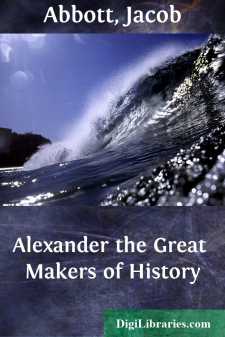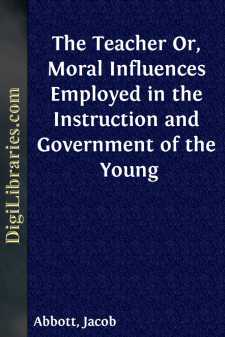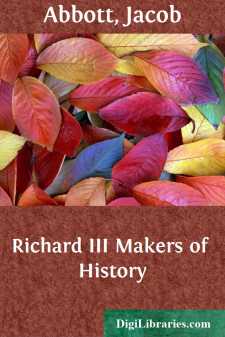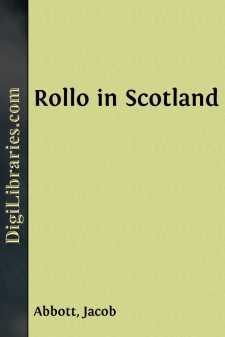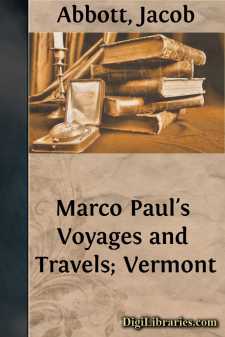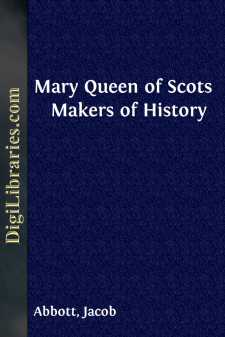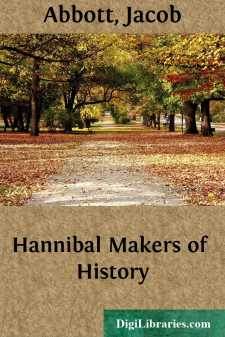Categories
- Antiques & Collectibles 13
- Architecture 36
- Art 48
- Bibles 22
- Biography & Autobiography 813
- Body, Mind & Spirit 142
- Business & Economics 28
- Children's Books 17
- Children's Fiction 14
- Computers 4
- Cooking 94
- Crafts & Hobbies 4
- Drama 346
- Education 46
- Family & Relationships 57
- Fiction 11829
- Games 19
- Gardening 17
- Health & Fitness 34
- History 1377
- House & Home 1
- Humor 147
- Juvenile Fiction 1873
- Juvenile Nonfiction 202
- Language Arts & Disciplines 88
- Law 16
- Literary Collections 686
- Literary Criticism 179
- Mathematics 13
- Medical 41
- Music 40
- Nature 179
- Non-Classifiable 1768
- Performing Arts 7
- Periodicals 1453
- Philosophy 64
- Photography 2
- Poetry 896
- Political Science 203
- Psychology 42
- Reference 154
- Religion 513
- Science 126
- Self-Help 84
- Social Science 81
- Sports & Recreation 34
- Study Aids 3
- Technology & Engineering 59
- Transportation 23
- Travel 463
- True Crime 29
Jacob Abbott
Jacob Abbott was a prolific 19th-century American author known for his numerous works of juvenile fiction, biographies, and religious texts. Born on November 14, 1803, in Hallowell, Maine, Abbott's most famous series includes the "Rollo Books," which educated and entertained children with moral lessons and adventures. In addition to his writing, Abbott was an influential educator and founded the Mount Vernon School for Young Ladies in Boston.
Author's Books:
Sort by:
by:
Jacob Abbott
His Childhood and Youth. B.C. 356-336The briefness of Alexander's career.Alexander the Great died when he was quite young. He was but thirty-two years of age when he ended his career, and as he was about twenty when he commenced it, it was only for a period of twelve years that he was actually engaged in performing the work of his life. Napoleon was nearly three times as long on the great field of...
more...
by:
Jacob Abbott
CHAPTER I.INTEREST IN TEACHING. There is a most singular contrariety of opinion prevailing in the community, in regard to the pleasantness of the business of teaching. Some teachers go to their daily task, merely upon compulsion: they regard it as intolerable drudgery. Others love the work: they hover around the school-room as long as they can, and never cease to think, and seldom to talk, of their...
more...
by:
Jacob Abbott
Richard's Mother.The great quarrel between the houses of York and Lancaster.Terrible results of the quarrel.Origin of it.The mother of King Richard the Third was a beautiful, and, in many respects, a noble-minded woman, though she lived in very rude, turbulent, and trying times. She was born, so to speak, into one of the most widely-extended, the most bitter, and the most fatal of the family...
more...
by:
Jacob Abbott
JONAS AN ASTRONOMER. One day, when Rollo was about seven years old, he was sitting upon the steps of the door, and he heard a noise in the street, as of some sort of carriage approaching. A moment afterwards, a carryall came in sight. It drove up to the front gate, and stopped. Rollo’s father and mother and his little brother Nathan got out. His father fastened the horse to the post, and came in....
more...
by:
Jacob Abbott
CHAPTER I. MORNING Early one winter morning, while Jonas was living upon the farm, in the employment of Oliver's father, he came groping down, just before daylight, into the great room. The great room was, as its name indicated, quite large, occupying a considerable portion of the lower floor of the farmer's house. There was a very spacious fireplace in one side, with a settle, which was a...
more...
by:
Jacob Abbott
The Boy that was not loaded. In the course of his travels in Europe, Rollo went with his uncle George one summer to spend a fortnight in Scotland. There are several ways of going into Scotland from England. One way is to take a steamer from Liverpool, and go up the Clyde to Glasgow. This was the route that Mr. George and Rollo took. On the way from Liverpool to Glasgow, Rollo became acquainted with a...
more...
by:
Jacob Abbott
Chapter I. Journeying. When Mr. Baron, Marco's father, put Marco under his cousin Forester's care, it was his intention that he should spend a considerable part of his time in traveling, and in out-of-door exercises, such as might tend to re-establish his health and strengthen his constitution. He did not, however, intend to have him give up the study of books altogether. Accordingly, at one...
more...
by:
Jacob Abbott
Pyrrhus, King of Epirus, entered at the very beginning of his life upon the extraordinary series of romantic adventures which so strikingly marked his career. He became an exile and a fugitive from his father's house when he was only two years old, having been suddenly borne away at that period by the attendants of the household, to avoid a most imminent personal danger that threatened him. The...
more...
by:
Jacob Abbott
Mary's Childhood. 1542-1548 Travelers who go into Scotland take a great interest in visiting, among other places, a certain room in the ruins of an old palace, where Queen Mary was born. Queen Mary was very beautiful, but she was very unfortunate and unhappy. Every body takes a strong interest in her story, and this interest attaches, in some degree, to the room where her sad and sorrowful life...
more...
by:
Jacob Abbott
Chapter I. B.C. 280-249Hannibal.Rome and Carthage.Hannibal was a Carthaginian general. He acquired his great distinction as a warrior by his desperate contests with the Romans. Rome and Carthage grew up together on opposite sides of the Mediterranean Sea. For about a hundred years they waged against each other most dreadful wars. There were three of these wars. Rome was successful in the end, and...
more...


